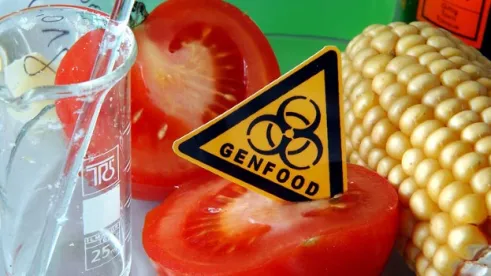-
As previously reported on this blog, legislation requiring labeling of genetically modified (GM) foods and food ingredients was signed into law on July 29, 2016. This law directs the U.S. Department of Agriculture (USDA) to develop regulations and standards to create mandatory disclosure requirements for bio-engineered foods by July 2018. On June 28, 2017, USDA’s Agricultural Marketing Service (AMS) posted a list of 30 questions to obtain stakeholder input to facilitate the drafting of mandatory disclosure requirements to implement the National Bioengineered Food Disclosure Law. One of those questions is:
-
“Will AMS require disclosure for food that contains highly refined products, such as oils or sugars derived from bioengineered crops?”
-
-
USDA has not yet posted the comments it has received, which were due by August 25, 2017; however, several organizations have posted the comments they submitted in response to the questions. Among the organizations supporting disclosure were the Grocery Manufacturers Assn. (GMA), the International Dairy Foods Assn. (IDFA)and the Consumers Union. Noting that excluding highly refined ingredients (HRI) from the scope of the mandatory disclosure standard would result in roughly 80% fewer products being subject to the disclosure requirements under the federal law, GMA wrote, “A clear, simple, and consistent mandatory disclosure standard that includes HRI will assist manufacturers in educating consumers about biotechnology as a safe and beneficial method of plant breeding.”
-
In contrast, the Information Technology & Innovation Foundation (ITIF) and The Biotechnology Innovation Organization (BIO) are opposed to mandatory disclosure of HRI. ITIF suggested that some refined products do not contain residual DNA sequences and that “[t]here are not analytical methods that would allow such products to be identified as coming from ‘GM’ plants or animals vs. others.”
-
While USDA develops mandatory disclosure requirements for bio-engineered foods, a number of class action laws suit have been filed suggesting that products containing GM ingredients are falsely labeled as natural. For example, last week, the U.S. Supreme Court refused to hear a bid by Conagra Brands Inc. to avoid a class-action lawsuit concerning cooking oil labeled 100% natural that contains GM ingredients (see S. News). And earlier this month, Frito-Lay North America agreed to not make any non-GMO claims on certain products “unless the claim is certified by an independent third-party certification organization”(see Food Navigator).
-
We will continue to monitor developments on the National Bioengineered Food Disclosure Standard and report them to you here.
GM Labeling Update: Ingredient Disclosure Debate
Tuesday, October 17, 2017
Current Public Notices
Published: 4 September, 2025
Published: 3 September, 2025
Published: 28 August, 2025
Published: 25 August, 2025
Published: 25 August, 2025
Published: 25 August, 2025
Published: 25 August, 2025
Published: 22 August, 2025
Published: 20 August, 2025
Published: 20 August, 2025
Published: 18 August, 2025
Published: 18 August, 2025
Published: 11 August, 2025
Published: 8 August, 2025
Published: 26 June, 2025



 />i
/>i

